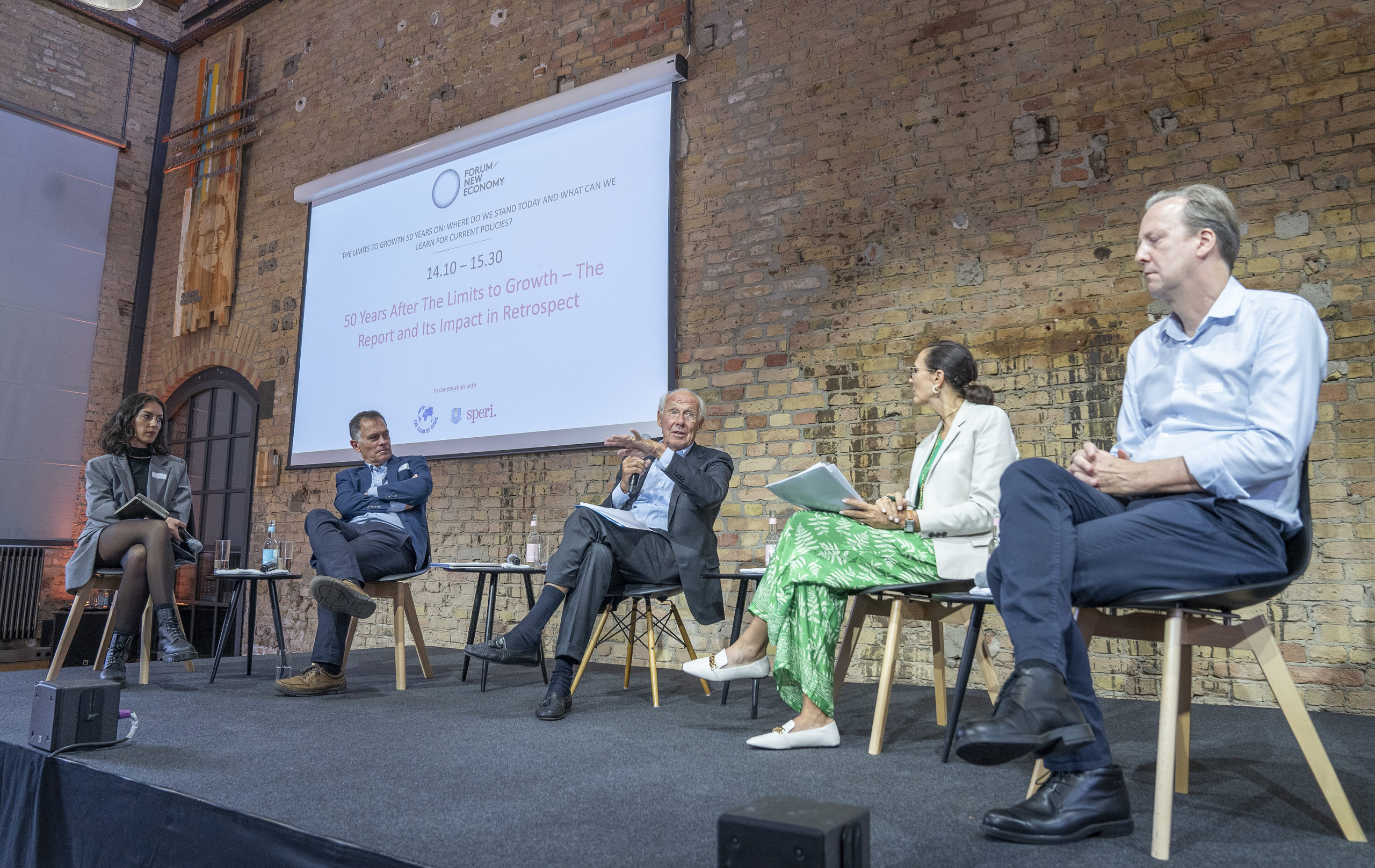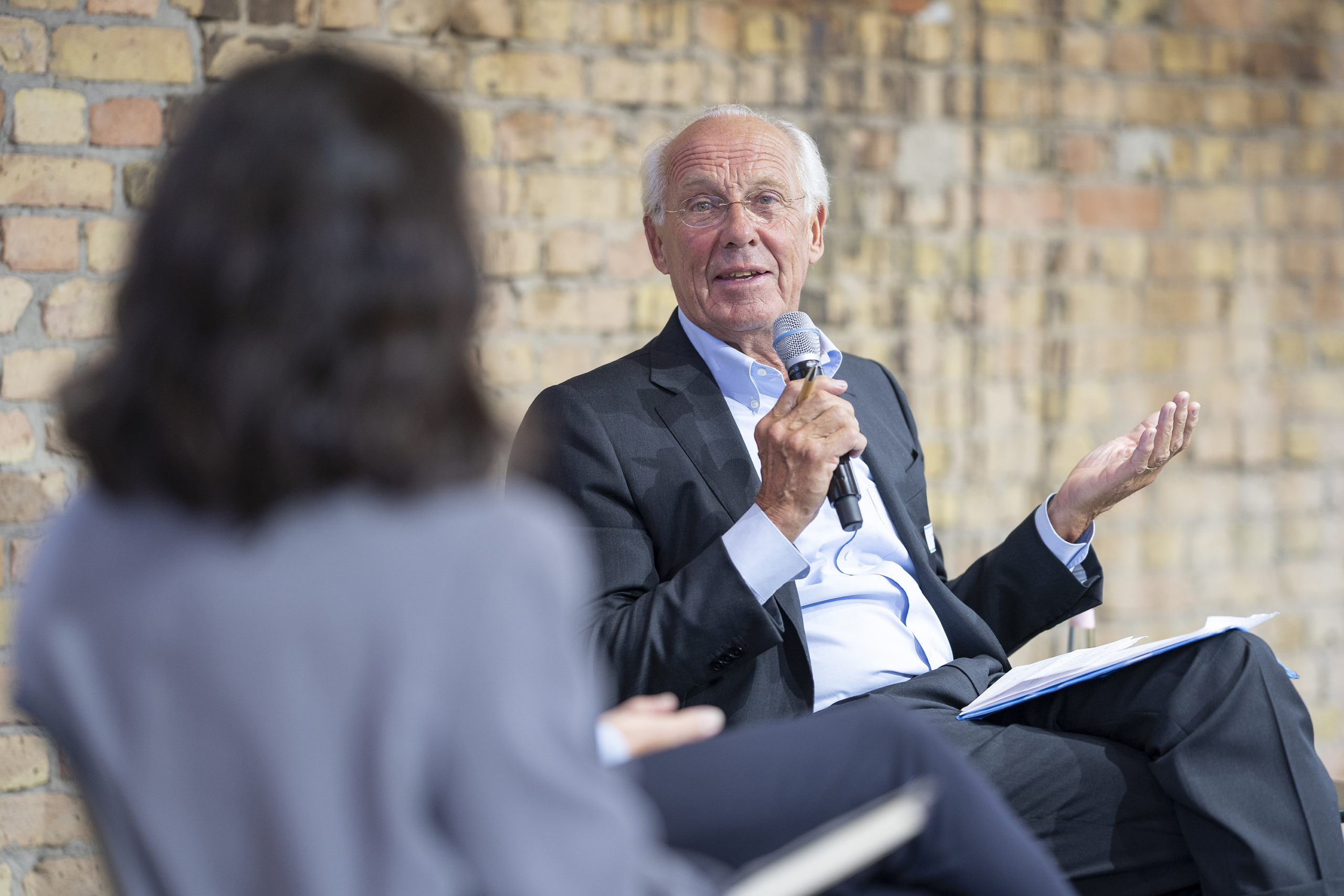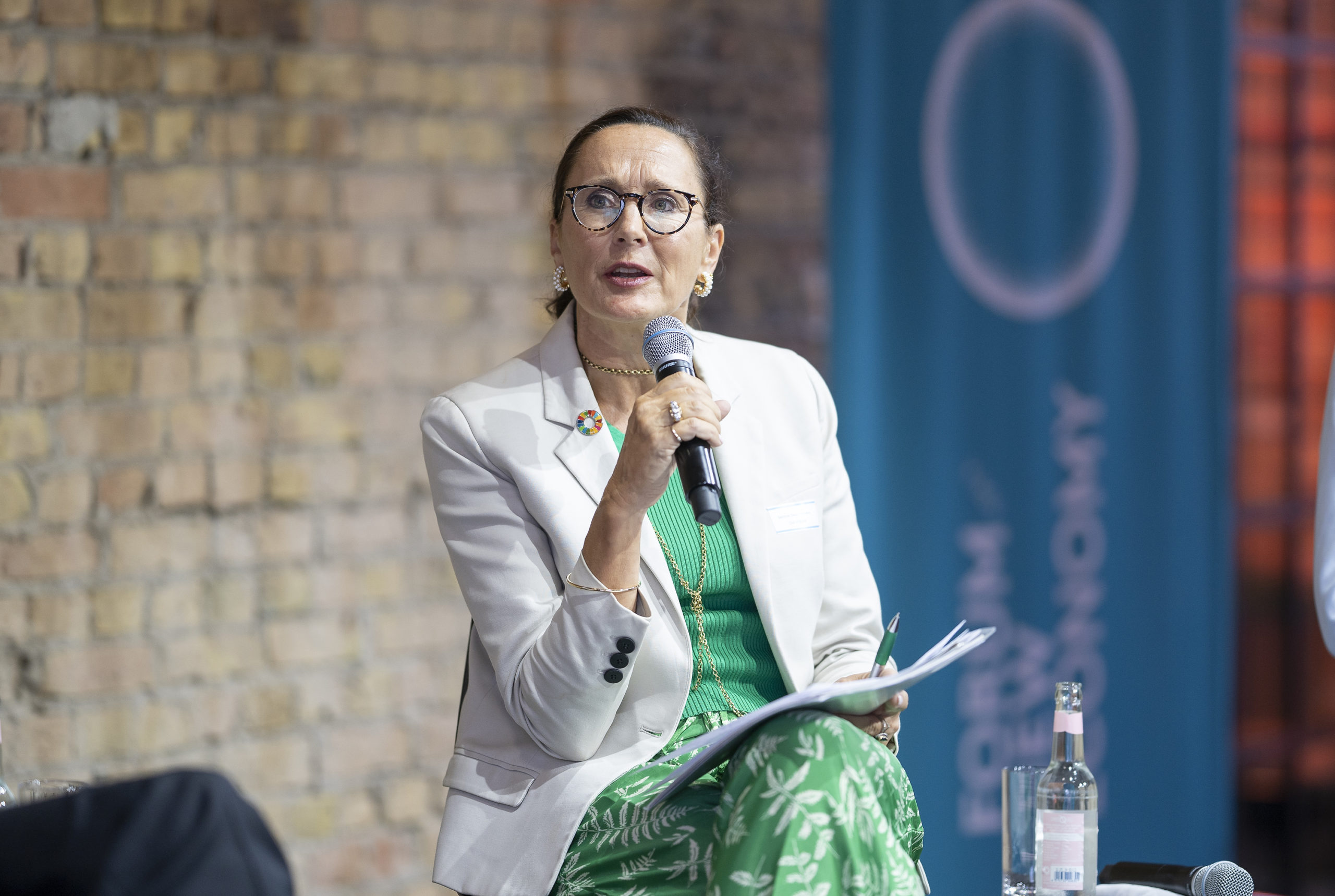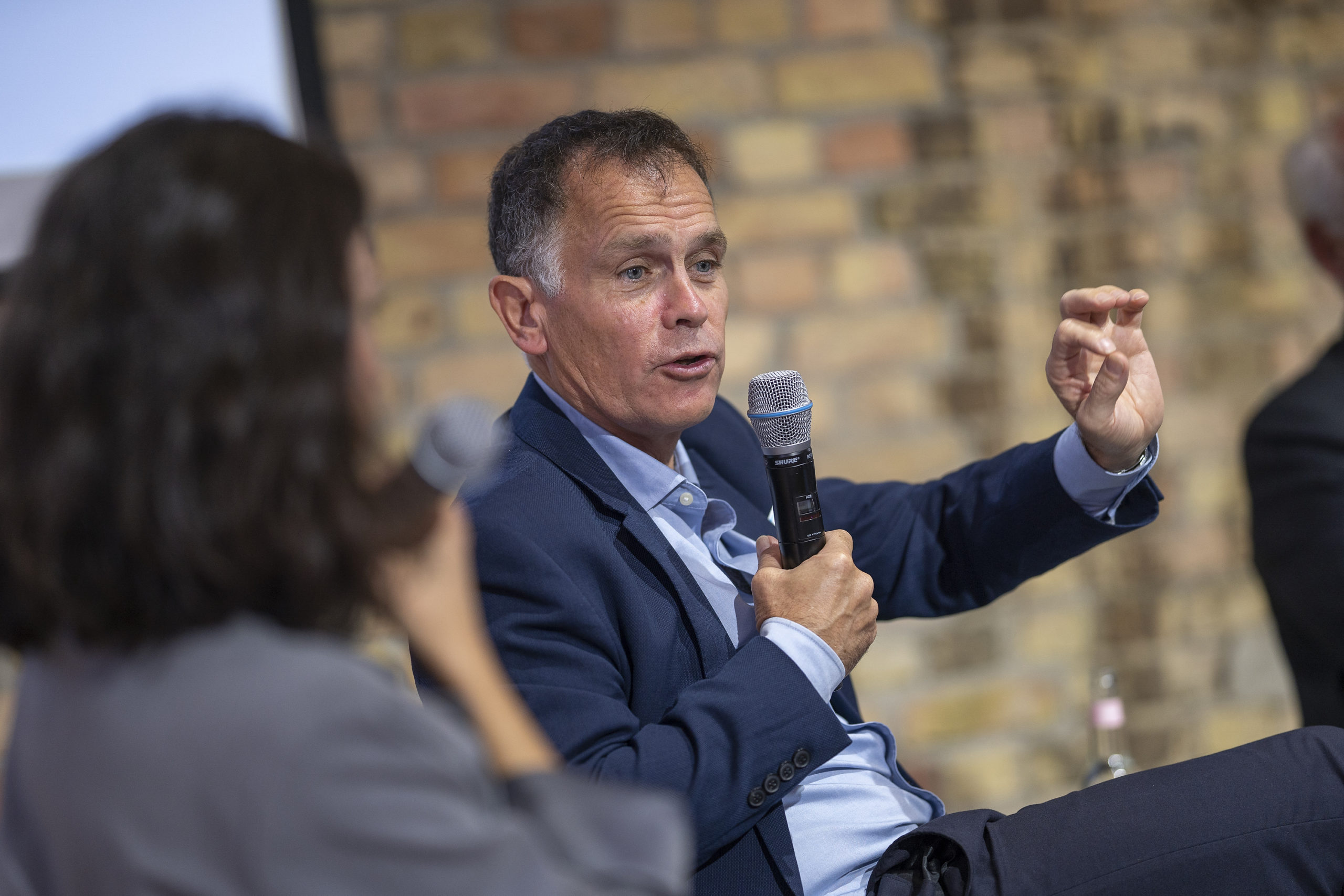CLIMATE
50 Years Limits to Growth
What is the legacy of the 1972 "Limits to Growth" report for the green-growth vs. de-growth debate? And how a post-growth stance can help policy makers to focus on the necessary countermeasures was the topic of the introductory session of our Symposium.
BY
DAVID KLÄFFLINGPUBLISHED
2. SEPTEMBER 2022READING TIME
6 MIN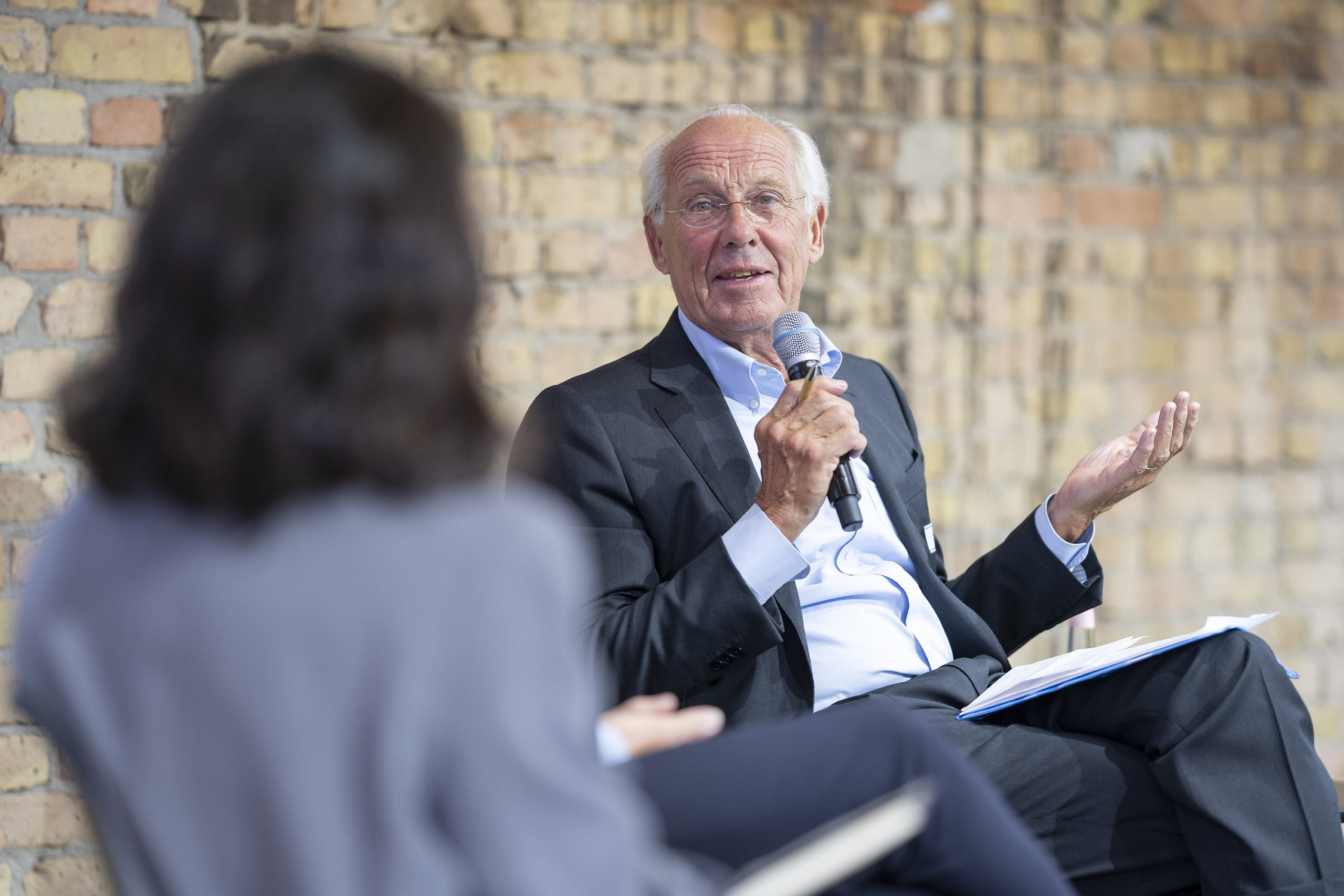
Growth, or no growth – that seems to be the question. At least when it comes to the debates that followed the “Limits to Growth” report by the Club of Rome. Today, this debate is still ongoing, but is slowly taking a backseat as a new agnostic stance towards growth gains in importance. It becomes more and more prevalent to address the specific goals of saving the climate or biodiversity – and only secondly evaluating whether or not this still results in growth.
This process was also mirrored in the introductory session of our Symposium on the occasion of the 50th anniversary of the influential Club of Rome report that was concerned with its impact and legacy as well as with its policy implications for today.
In his short talk with Thomas Fricke (Forum New Economy), one of the authors of the original report Jørgen Randers, who introduced himself as deeply depressed man with a smiling face, stated that the general problem is very easy to understand: try to fit ever growing people and material consumption on a finite planet seems to be inconsistent.
The introductory talk was followed by Michael Jacobs’ (SPERI) presentation on 50 years of the limits of growth debate. Next to taking a historical perspective on the reactions after the “influential, non-influential” report was published in 1972, he traced the division into two growth-camps, namely de-growth and green-growth. These two groups disagreed on one thing: the question whether decoupling is theoretically possible or not. The takeaway of Michael’s talk was that in the light of the ever-increasing challenges posed by multiple environmental and climate crises that is the wrong question to be concerned with.
The crucial question is not whether decoupling can be done in theory, but whether can be done quickly enough. Let's get beyond the theoretical argument and try!
This post-growth view was also widely supported in the panel discussion that followed the presentation. Next to Jørgen Randers and Michael Jacobs, the other panelists included Sandrine Dixson-Declève (Club of Rome) and Tom Krebs (University of Mannheim, Forum New Economy).
Exploring the reasons for the limited policy reaction to the report, Jørgen self-critically observed that they have not succeeded in the the distinction between growth of the ecological footprint and growth of GDP, between real resources and monetary measurements. Additionally, the higher personal short-term costs of change and adjustments stood in the way of implementing the necessary countermeasures.
On this, Sandrine Dixson-Declève pushed back a little and made bad and short-sighted decision making responsible since immediate cost might seem high, but long-term costs are much more detrimental. She also stretched the importance of social change for the climate, proposing a new value basis that rates employee and ecological value over shareholder value and accounts for care work or nature.
GDP should be allowed to grow as long as it properly reflects the economy, which currently it doesn't. We have an overfinancialization of the economy. We have to reflect more broadly whether GDP growth benefits the many - or just the very few.
In his talk, Tom Krebs concentrated on two opposing policy approaches for decoupling, differentiating between market-liberal propositions (e.g. carbon tax) and modern climate policy beyond market solutions (e.g. Green New Deal). According to Tom, good jobs policies and strengthening the bargaining power of labor as well as public investments or green industrial policies belong at the centre of the latter policy strategy.
Overall, all panelists agreed that the environmental crisis is multidimensional and not only restricted to greenhouse gas emissions. Also, the post-growth stance received unanimous assent in leaving the growth/de-growth debate aside and focus on policies helping us to stay within the planetary boundaries.

